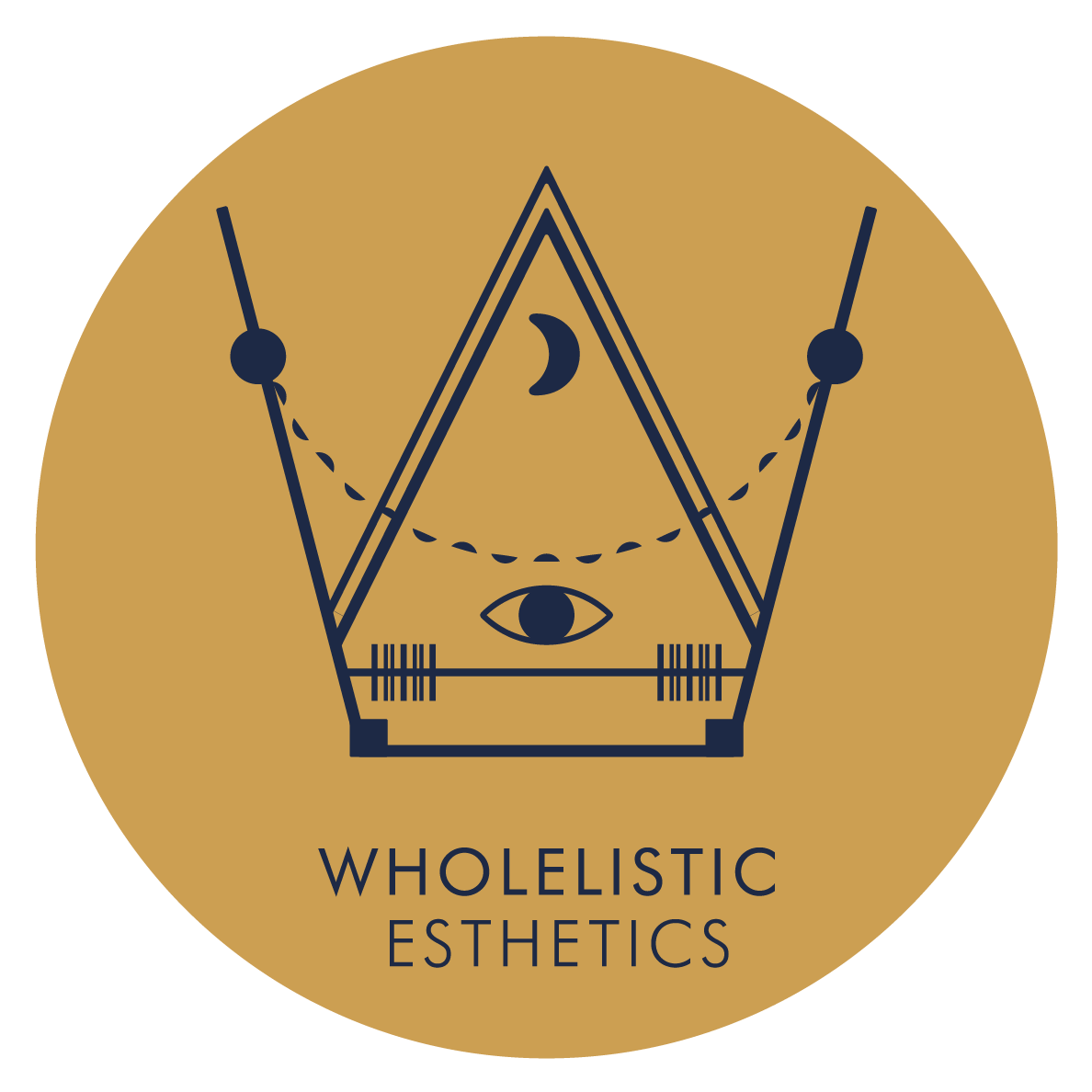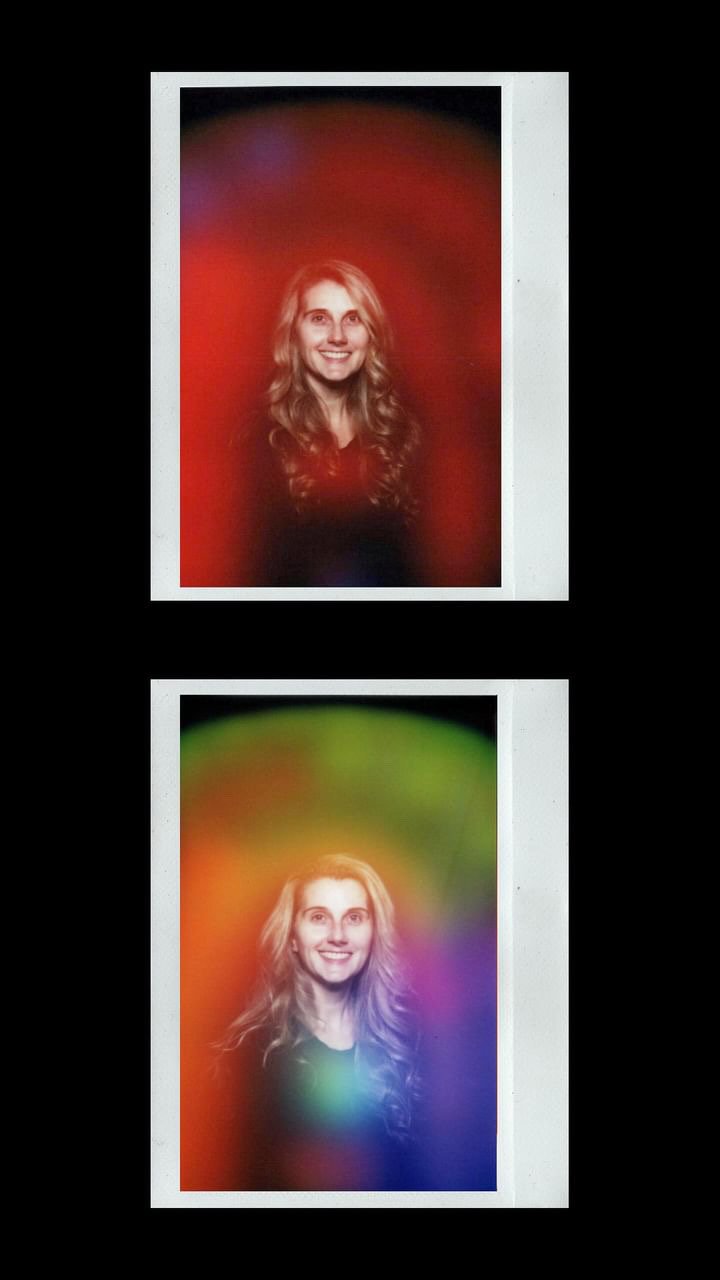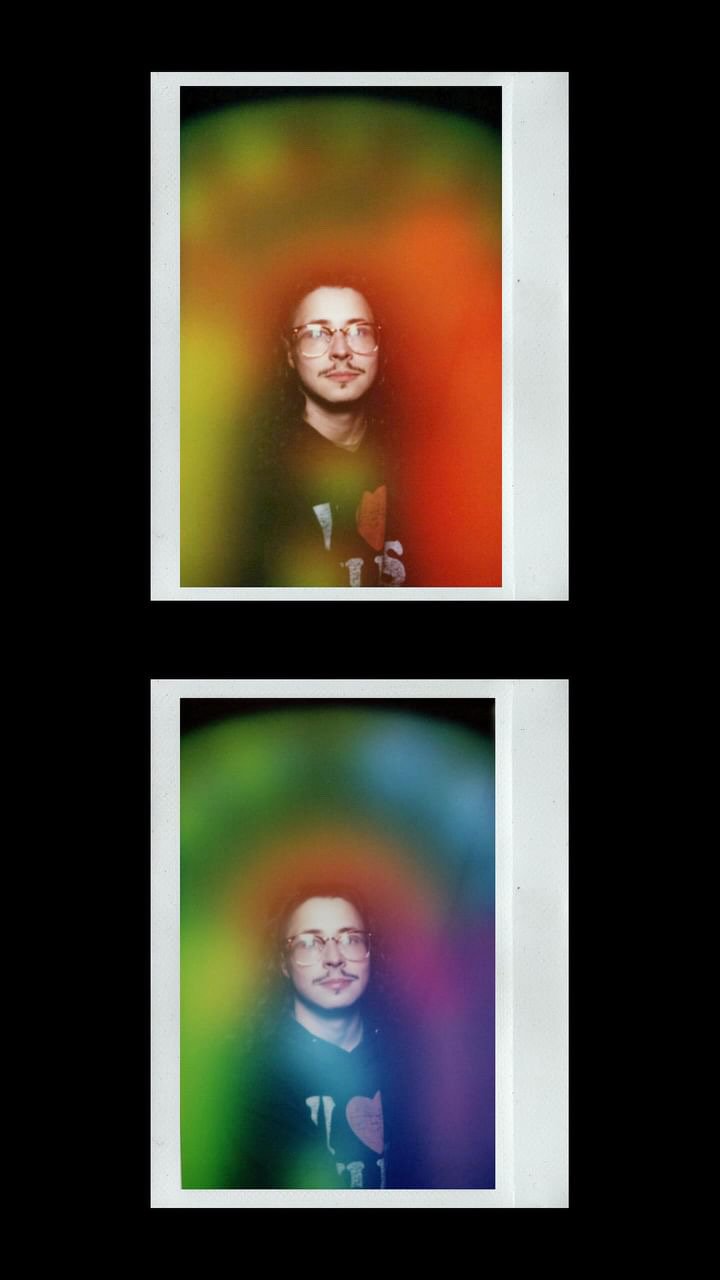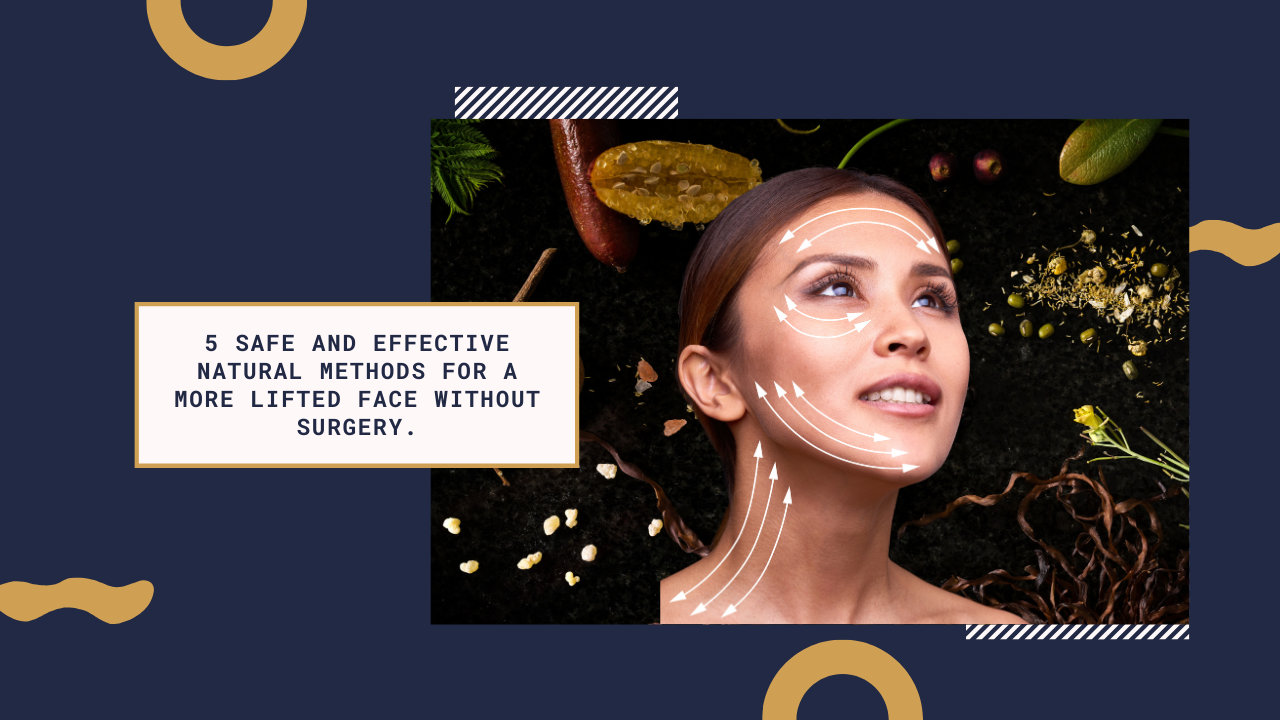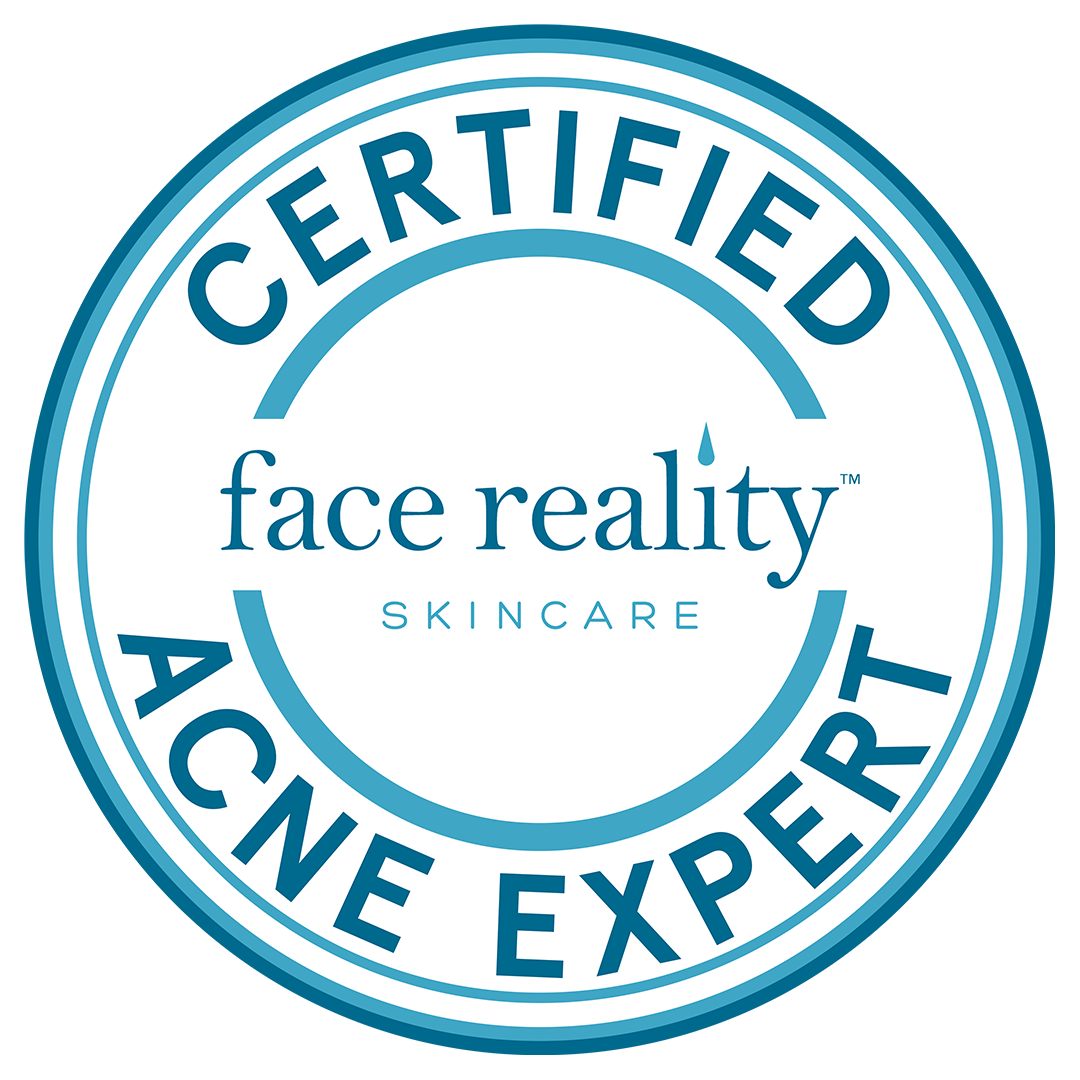
ADVICE
Tips, Thoughts
&
Musings
Skincare Demystified: What's the Difference Between Retinol & Retinal and Which One You Need
Vitamin A derivatives like Trentinoin are going viral. What’s all the hype?
Retinol and Retinal are both made from Vitamin A. Depending on the process, you can end up with a few different types of ingredients. All of them aim to speed up cellular turnover to enhance the look and feel of skin. Here’s a quick breakdown of each ingredient, which one you may want to try, and why, as holistic estheticians, we tend to not recommend them in their processed form.
Retinol: Vitamin A derivative that is known to speed up cellular turnover making your skin think it is ‘younger than it is’. Available over the counter. It needs to be converted to Retinal and then Retinoic Acid before it can become bio-available to the skin. That double chemical process happens on the surface of the skin which is one reason it causes dryness and irritation in most people. Conventionally recommended for those with oily, congested skin that isn’t sensitive.
Retinal: Also known as Retinaldehyde, only has to go through one chemical process to become Retinoic Acid (bioavailable to your skin), and because of that ends up being effective 11 times faster than Retinol. It still may cause dryness and irritation in people with compromised barrier function. Conventionally recommended for those with a strong skin barrier that are noticing unwanted signs of aging.
Bakuchiol: a plant extract that offers the same skin benefits of a retinol, without the irksome side effects. It is derived from the psoralea corylifolia plant aka the "babchi" plant. Well known in the world of ayurveda, this ingredient has antioxidant, anti-inflammatory and antibacterial properties in addition to encouraging healthy tissue function and increased cellular turnover. Generally recommended for anyone that is concerned with signs of aging (prevention and correction), especially those whose skin tends to be more sensitive.
SOMETHING ELSE TO CONSIDER
From a Wholelistic perspective, we love working with whole plants and plant derived ingredients because of how they naturally work synergistically with your skin. Plants that contain vitamin A generally also contain vitamins C and E, both of which are necessary for effective bioavailability. We also love a well supported diverse microbiome and working with plant ingredients tends to support a flourishing colony of microorganisms necessary for ultimate barrier function.
Anytime an ingredient that originated in plant form and is isolated in a lab for use in skincare, it is stripped of the “assistant” ingredients that originally made that isolate bioavailable to the skin. Laurel Skin has come up with a beautiful solution with their Compounds. These topical serums act as skin supplements providing high concentrations of the active ingredients we want without stripping away the necessary assistant ingredients. For example, their Radiance Compound contains a high concentration of brightening, full-spectrum Vit C, resurfacing AHAs and reparative flavanoids that all work together to support the healthiest levels of desquamation (cellular turnover).
Constantly inflaming the surface of the skin with a retinol that is said to make you look younger seems counterintuitive since chronic inflammation is a huge component to pre-mature aging….
If you are starting to notice unwanted signs of aging or fatigue, we recommend the Esse Bakuchiol Serum or the Laurel whole plant Antiaging Serum to start. Ask your esthetician which product or ingredient is right for you and your skin type!
All of the information provided here is for your own consideration and never comes from a place of judgment. The majority of the beauty industry is all about marketing and selling you products based on your fear of aging so they don’t always have your best interest at heart! We are just looking out for you and hoping you take the time to check in with your body, do your research and make decisions that are best for YOU at this time.
XOXO
Can a Wholelistic Facial Have an Impact on Your Energetic Field? Activate Your Chakras by Tapping Into Your Nervous System.
WHAT IS AN AURA?
Your aura is an energy field that surrounds your body. It is composed of 7 layers of color, each coinciding with an aspect of your physical, mental, spiritual and emotional health.
On January 20, 2024 we held a little experiment at Wholelistic Esthetics in downtown Martinsburg, WV. We invited Soulshine Aura Photography to help us document the shifts in energy that happen when you experience a facial with us. Maggie was able to take before and after photos using her Aura Camera to document what someone’s energy was before a 45 min relaxing facial using our wholelistic protocols and then after that treatment.
WHY WOULD A WHOLELISTIC FACIAL EFFECT YOUR AURA?
While it’s believed that parts of your aura represent who you are at your core, it’s also possible that your emotions and experiences can have real-time effects on how your aura presents! Obviously things like stress and tension would have a potentially negative effect on your energetic field. Being stressed all the time can definitely ‘harsh the vibe’.
The ‘secret sauce’ of our Wholelistic Facials is that we help you slip into your para-sympathetic nervous system state. Out of the ‘fight, flight or freeze’ that many of us get stuck in, and into the ‘rest, digest and heal’ which is the only time when our cells can properly and effectively replicate themselves. You can read more about our work with the nervous system on our blog.
If you have ever experienced a facial with us, then you know that you FEEL the difference between when you arrived and when you are leaving. Now we have the chance to SEE the effects our treatments have on you! It only makes sense that your colors might shift, even a little, to reveal your more relaxed, balanced self.
Below you will find the results of our experiment and, spoiler alert, there are some gorgeous visible changes! An extra special thank you goes out to Maggie for making the experiment magical as well as taking the time to provide an in-depth analysis of a few readings using her expertise and obvious passion for this work.
2 of the clients pictured below received our standard wholelistic facial, similar to what one might experience during our Wholelistic Bespoke 60 min Facial.
The other 2 clients received an addition of a special frequency coded oil, similar to what one might experience during the Enlightened Experience of our Wholelistic Bespoke 120 min Facial. We are thrilled to be bringing this Quantum technology to the world of wholelistic skin and wellness and wiil be sharing more about this in the very near future…
“Before the facial, Client 1’s aura was characterized by an orange and red presence on the Yang side and murky green above the head, possibly indicating a dynamic and active energy but with some cloudiness in mental clarity. After the facial, the aura on the Yang side became golden yellow, a color often associated with the solar plexus chakra and representing self-confidence, personal power, and optimism. The bright green above the head could suggest a cleansing of thoughts and a newfound sense of healing and balance. The orange and red on the Yin side remained, suggesting that the client’s emotional strength and passion are still prominent. The facial appears to have invigorated Client 1’s sense of personal power while providing mental clarity.“
“For Client 3, the aura pre-facial showed orange on the Yang side and red above the head, with violet and indigo on the Yin side, suggesting a mix of creative energy and spiritual depth. Post-facial, the aura on the Yang side remained consistent, maintaining the client’s creative and passionate energy. However, the introduction of magenta above the head, replacing the red, could indicate a transformation towards a more compassionate and loving energy, while the stable presence of violet and indigo on the Yin side indicates that the client’s inner wisdom and intuition remained intact. The facial for Client 3 seems to have amplified the heart-centered qualities, nurturing a more compassionate outlook.“
“Client 2 had a special infused essential oil added to their facial, DMT™ 963 Coded Oil by Bio Quantum. Per the Bio Quantum website, this oil is a, “Bio Quantum Particle Accelerator created to shift consciousness through Decoded Molecular Technology (DMT). You can see it as a map with specific frequencies that supports the DNA to move from observation of its environment into the expression of dormant DNA Codes”. Following their facial with this oil , their aura underwent a remarkable transformation.
Initially, Client 2 had an all-red aura indicative of a strong, passionate energy with violet orbs suggesting spiritual awareness. The red orb on the heart chakra might have signified a concentrated emotional intensity. However, after receiving the facial with the infused essential oil, the presence of orange and red on the Yang side, coupled with green and yellow above the head, implies a balance between a sustained energetic drive and a fresh sense of growth and positivity. Furthermore, the introduction of violet, indigo, and magenta on the Yin side, along with a green glowing orb on the heart chakra, hints at a harmonizing effect. This change potentially ushered in emotional healing and a deeper connection to one’s intuition for Client 2. The facial seems to have helped harmonize Client 2’s emotional and spiritual energies, leading to a more balanced state, and a noticeably transformed aura.“
“Before the facial, Client 4’s aura showed yellow on the Yang side, with murky green and orange above the head, suggesting a cheerful disposition but with some areas of emotional confusion. The yellow orbs on the heart and sacral chakras indicated a focus on personal power and creativity. Following the facial, the aura on the Yang side turned green, symbolizing a rejuvenation and growth in the client’s life force energy. The clearer and more diverse colors above the head, including green, blue, orange, and tan, suggest a cleansing of mental and emotional confusion, leading to a more balanced and expansive state. The white heart chakra indicates a cleansing and rebirth in emotional matters, while the green sacral chakra points to a renewal in creativity and pleasure. The facial appears to have helped Client 4 achieve greater emotional clarity and balance, encouraging growth and renewal in various aspects of life.“
The frequency coded oil was used during Client 4s facial as well.
As you can see
Taking the time to prioritize your well-being makes an impact on your energy levels, how you see yourself and how you show up in the world! We are honored to curate this space for you and we can’t wait to see you soon.
Unlocking Radiant Confidence: The Ultimate Guide to Teen Skincare Tips for a Clear and Glowing Complexion
Taking care of your skin in your teens is crucial for establishing a healthy skincare routine that can benefit you in the long run. Here are some essential skincare tips for teenagers:
1. Cleansing is Key:
- Use a gentle, sulfate-free cleanser twice a day (morning and night) to remove dirt and excess oil without stripping your skin.
2. Moisturize Regularly:
- Even if you have oily skin, moisturizing is essential. Choose a lightweight, non-comedogenic moisturizer to keep your skin hydrated.
3. Sunscreen Always:
- Apply a broad-spectrum SPF 30 or higher sunscreen every morning, regardless of the weather. Protecting your skin from the sun helps prevent premature aging and reduces the risk of skin cancer.
4. Say No to Picking:
- Avoid picking at pimples or touching your face frequently. This can worsen acne and lead to scarring. Fidget toys and cold rollers can be very helpful if picking is a habit you have.
5. Choose Acne-Friendly Products:
- If you have acne-prone skin, opt for skincare products with ingredients like salicylic acid or benzoyl peroxide to help manage breakouts. We highly recommend the brand Face Reality because they have a full line of acne safe products that can help keep skin clear.
6. Balanced Diet:
- Eat a balanced diet rich in fruits, vegetables, and whole grains. Nutrient-rich foods contribute to healthy skin.
7. Stay Hydrated:
- Drink plenty of water to keep your skin hydrated from the inside out.
8. Remove Makeup Before Bed:
- Always remove your makeup before going to bed to prevent clogged pores and breakouts.
9. Get Enough Sleep:
- Aim for 7-9 hours of sleep each night. A good night's sleep helps your skin rejuvenate and repair.
10. Be Mindful of Products:
- Avoid using too many products at once. Keep your routine simple to identify what works best for your skin. All of the products we see online are marketed to you specifically so influencers and corporations can make money off of you. It’s important that you find products that are good for YOUR skin, not what happens to be trending at the moment.
11. Consult a skin expert:
- If you have persistent skin concerns, consult an esthetician that specializes in acne. They can provide personalized advice and treatment options. Here’s a video explaining our approach to managing acne: Acne Expert
Remember, everyone's skin is unique, so it may take some time to find the products and routine that work best for you. Consistency is key, and being patient with your skin will pay off in the long term.
The biggest goal for teen skincare is creating a good routine. Make caring for your skin part of your daily awareness to be able to support healthy skin for your whole life!
Achieving a Youthful Facelift Effect: Non-Surgical Methods for Firmer, Tighter Skin
Yes, it is possible to achieve a "facelift" effect without the use of fillers or surgery. While non-surgical methods cannot replicate the exact results of a surgical facelift, they can still provide noticeable improvements in the appearance of the face, including firming, tightening, and rejuvenating the skin. Here are some non-surgical options that can help you achieve a more youthful and lifted appearance:
Facial Massage: Regularly performing facial massage at home can help strengthen and tone the muscles in your face, which can contribute to a more lifted look. There are massage moves that cumulatively target specific areas, such as the cheeks, jawline, and forehead, and can improve muscle definition and firmness over time. Our absolute favorite combination is the advanced Buccal massage technique (provided by our Radiance level estheticians) paired with the manual lymphatic drainage technique provides dramatic results all based in the magic of massage.
Lymphatic Facial Brushing: Traditional dry brushes are scratchy and tend to stimulate microcirculation. Our new lymphatic dry brushes are soft and specifically designed to help ‘pump’ the lymphatic system of the face. We can utilize these brushes during any of our treatments but they are incredibly effective when used at home as part of your daily ritual. By keeping the lymphatic system flushed your cells and tissue have the optimum environments to thrive which minimizes the appearance of fine lines, aging, discoloration, etc.
Light Therapies: Light-based therapies, such as LED (biophotonic), can improve skin texture, stimulate collagen production, and tighten loose skin. These treatments can address various signs of aging, including wrinkles, fine lines, and mild sagging. We use LED therapy in our Wholelistic 90 and 120 min Facials, as well as the acne skin clearing facials, but you can get the best results by using a homecare device several times per week. We love this one from BonCharge. Use code WHOLELISTIC at checkout for 15% off your order.
Microchanneling: A less invasive alternative to microneedling, this treatment allows our Epidermal Growth Factor serum to reach the lowest layers of skin where new cells are being made. A noticeable difference in the texture, tone, and color of the skin can be achieved in as little as 1-3 sessions. There is no downtime associated with this treatment and is very effective at lessening lines, wrinkles and hyperpigmentation. For more info about how this technology works, check out our article HERE.
Skin Care Regimen: A consistent and well-rounded skin care routine can also contribute to a more youthful appearance. Using quality skincare products that target specific concerns, such as fine lines and sagging skin, can help improve skin elasticity and firmness. Whole plant based ingredients like ceramides, peptides, and antioxidants can be beneficial in promoting a more youthful complexion.
It's important to note that all of these “alternative” treatments are very effective and will take more time and consistency compared to surgical procedures. The pros outweigh the cons in our opinion though, and we are happy to help you create the best treatment plan for your goals!
Ayurvedic Winter Skincare: Nourishing Your Skin in the Season of Vata
As we experience winter, we look at your skin and how the season has a distinct influence on the human body. Ayurveda recognizes that each season affects the balance of the three doshas (Vata, Pitta, and Kapha) within the body. Everyone has a degree of all three of these with one or two usually dominating. Here's how Ayurveda views the changes in the body and skin during the winter months:
Increase in Vata Dosha: Winter is predominantly characterized by a further increase in the Vata dosha. Vata is associated with qualities like cold, dryness, lightness, and mobility. These qualities become more pronounced during the winter season, impacting both the body and skin.
Dry Skin: Due to the cold and dry nature of winter, Vata dominance can lead to dry skin. The skin may become rough, flaky, and prone to irritation. Moisture loss is a common issue during this time.
Increased Sensitivity: The cold and windy conditions can make the skin more sensitive, causing it to react to environmental factors more readily. Skin may be prone to redness and inflammation.
Chapped Lips: Dry and cold weather can lead to chapped lips which can be very uncomfortable.
Dull Complexion: We might notice our complexion appear dull and lifeless due to the lack of moisture and natural oils in the skin.
Vulnerability to Skin Conditions: Existing skin conditions such as eczema or psoriasis may worsen during winter due to the heightened Vata influence.
What can we do to help balance the Vata during winter and soothe dry sensitive skin?
Empasis on Hydration: Ayurveda recommends maintaining adequate hydration during the winter season. This includes drinking warm water (with lemon) and herbal teas to keep the body and skin well-hydrated from within.
Oil Massage: Regular self-massage with warm, nourishing oils like sesame or almond can help to combat dryness, soothe the skin, and support the nervous system. Our Wholelistic Body Treatments are perfect for this! You can now book your Abhyanga Treatment with one of us!
Moisturizing Skincare: Using rich, moisturizing skincare products with natural ingredients can help protect the skin's moisture barrier. Ingredients like ghee, ceramides, and herbal creams are often used.
Warm Foods: We recommend consuming warm and nourishing foods during the winter season. These include soups, stews, and herbal teas, which help balance Vata and nourish the skin from the inside. Switch out your cold salad for one made with quinoa, roasted veggies and beans.
Avoid Harsh Exfoliation: During the winter, it's best to avoid harsh exfoliation or treatments that may strip the skin of its natural oils. Gentle exfoliation and hydrating masks can help with dead skin cell removal. This is why we don’t recommend chemical peels anymore and focus instead of plant-based enzyme exfoliation.
Protective Clothing: Wearing appropriate clothing, like scarves and hats, can protect the skin from the cold and wind, preventing excessive dryness and sensitivity.
Infrared Saunas: The healing and warming effects of infrared saunas can help to soothe the body while encouraging detox through sweating. This helps to stimulate the functions of the body that are responsible for removing metabolic waste and keeping everything in flow.
There is a beauty in the stillness and hibernation of winter. If left imbalanced it can lead to dry, sensitive, and potentially problematic skin. To maintain healthy skin in winter, it's essential to focus on hydration, nourishment, and gentle care to restore balance to the body and skin.
We hope you are enjoying the beauty of the season and look forward to seeing you soon!
Unlocking Radiant Skin and Wellness: Lymphatic Body Treatments and Dry Brushing Benefits
Dry brushing has been around for a long time. It’s a ritual you can do every day at home with a simple natural bristle brush and its effects can be taken to the next level when it’s done as part of one of our Wholelistic Treatments.
Why dry brush?
A traditional dry brush helps to stimulate circulation in the body. It also has a very mild exfoliating effect. We start at the extremities of the body (feet and hands) and work up and in towards the heart gently brushing the skin. Improved circulation means freshly oxygenated blood moving to our skin and organs.
What’s different about our Wholelistic Lymphatic Brushes?
Unlike the traditional brush (which can feel harsh or itchy), our lymphatic body and face brushes are extremely soft! They have a curved shape that naturally fits along the curves of the arms, legs, etc, as well as little nubs that help to gently tug the skin. This tool is the only one we have found that genuinly mimics the manual lymphatic drainage massage technique that we utilize during in-person treatments! When you come in for a Lymphatic Body Treatment you get to relax and enjoy the soft gentle rhythmic brushing all over your body as we encourage lymphatic movement and improved circulation. Then you get to take your brush home with you (for no extra charge) so you can re-create this rejuvenating ritual at home on a daily basis! This is incredily helpful since the cumulative effects of dry brushing will facilitate the greatest changes in your skin and overall wellness. For a theraputic effect, we recommend a series of Lymphatic Body Treatments with us before continuing with the ritual at home.
Who would benefit from a Lymphatic Body Treatment and dry brushing?
Everyone! But more specifically, if you have noticed sluggish or dull skin, dry irritated skin, sluggish digestion, low energy, lack of motivation, poor sleep, poor circulation, lack of focus, or painful mobility, dry brushing and lymphatic body treatments have been shown to bring noticeable improvement. It can also help improve recovery time and balance the nervous system! If this is you, then we highly recommend coming in to experience the deep relaxation and rejuvenation these types of treatments can bring.
You are now able to book your Lymphatic Body Treatments HERE! If you know of someone that may benefit from dry brushing, please do share this with them as well!
We hope to see you soon. Be well!
Ayurvedic Autumn Skincare: Balancing Vata for Healthy Skin
Ayurveda is an ancient system of medicine that originated in India. It is based on the principles of balance and harmony within the body, mind, and spirit. It recognizes that each season affects the body differently, and autumn is no exception. At Wholelistic Esthetics we utilize the wisdom of Ayurveda when considering treatments, ingredients and what might be most supportive for your skin.
From an Ayurvedic perspective, here’s what our bodies experience during this season and how it might effect your skin:
Vata Imbalance: The autumn season is associated with the dosha (bioenergy) called Vata. Vata is characterized by qualities of dryness, coldness, lightness, and mobility. As autumn brings colder and drier weather, these qualities can exacerbate Vata imbalances in the body. This can lead to various issues, including skin problems.
Dry Skin: The dryness of autumn can cause an increase in dry skin conditions. This is because Vata's influence can lead to dehydration and flakiness in the skin. Skin may become rough, itchy, and prone to cracking or irritation.
Sensitivity: Increased sensitivity is common during this time, which can make the skin more reactive to various environmental factors. It may become more prone to redness and inflammation.
Unpredictable Skin Changes: Vata's influence can lead to unpredictable changes in the skin. Some days it may feel excessively dry, while on others, it might appear oily or congested. Don’t be alarmed if you notice some changes, we will be able to chat about what you are experiencing and how to balance it during your appointment.
Here’s some recommendations to help balance the Vata energy within your body:
Emphasizing Hydration: To counter the effects of Vata imbalance during autumn, Ayurveda recommends focusing on maintaining proper hydration. Drinking warm water and herbal teas can help keep the body and skin hydrated from within.
Oil Massage: Abhyanga, an Ayurvedic self-massage (pronounced Ah-Bee-Yon-Ga) with nourishing oils like sesame or almond is encouraged during autumn. This helps lubricate the skin, prevent excessive dryness, and soothe the nervous system.
Moisturizing Skincare: Using rich, hydrating moisturizers and natural skincare products is essential to protect the skin's moisture barrier. Ingredients like honey, aloe vera, and oils can be beneficial.
Warm Foods: Ayurveda suggests incorporating warm and nourishing foods into your diet during the autumn season. This includes soups, stews, and herbal teas to help balance Vata.
Avoid Harsh Exfoliation: During autumn, it's best to avoid harsh exfoliants or treatments that can strip the skin of its natural oils. Gentle exfoliation, manual lymphatic drainage massage, soothing and hydrating ingredients are essential.
Balance Rest and Activity: Balancing rest and activity is crucial during autumn. Stress and excessive activity can further exacerbate Vata imbalances. Adequate sleep and relaxation are essential for skin health.
Overall, we love a good transition period and moving from the heat of summer into the cooling of autumn is a wonderful thing! To maintain healthy skin during this season, it's important to focus on hydration, nourishment, and gentle care to restore balance to the body and skin. Just like the natural world starts to slow down to prepare itself for winter, we can benefit from doing the same.
Do you know someone that may benefit from learning about Vata energy and autumn skincare? Please share this with them. We hope to see you soon!
Rest and Rejuventation: Balancing Your Nervous Systems for Healthy Skin
How can we achieve the healthiest, most vibrant skin? It’s not as complex as you may think….
In its simplest form, our skin is made up of layers of cells. These cells require adequate nutrients and oxygen as well as the ability to remove metabolic waste to thrive. If we facilitate those 3 simple things, our skin would have no choice but to be vibrant and glowy! If its truly as simple as that then why do we all feel like we are struggling with our skin???
Everything about conventional living, while making some things incredibly convenient, is essentially working against what our cells need to thrive. We spend tons of time in doors, working on computers, staring at our phones, working long hours, not getting enough sleep, etc. All of these things cause the symptoms that are blocking cellular vitality:
Stress
Inflammation
Stagnant Lymph
Ok, so what can we do about it?
We have to rest. We have to! We have 2 types of nervous systems in our body. The symphathetic nervous system is responsible for our state of awareness. It becomes hyper-active when the “fight, flight, freeze or fawn” response is engaged during times of great physical or emotional demand. In today’s society not many of us have to worry about running away from an attacking bear, BUT our bodies don’t know the difference between a predator attack and an overwhelming amount of emails and project deadlines. It might seem silly but we live in a world that creates an excess ‘symphathetic’ load which leads to all sorts of imbalances in our brains and bodies. If our systems are constantly prepared to flee at any given moment we can’t heal.
The parasympathetic nervous system is responsible for allowing the body to function in the “rest and digest” state. When this response is engaged, it triggers salivation, digestion, lowered heart rate, and slower deeper breathing. In this relaxed state our body systems are able to function without threat. Our cells are able to regenerate and healing mechanisms are able to engage. Until we prioritize spending time in the parasympathetic state, our bodies wont be able to carry out the necessary functions leading to more imbalances, less than adequate cellular activity, sluggish inflammed skin and premature aging to say the very least.
We highly recommend making time to come in and experience a deeply relaxing treatment from one of us to help induce the parasympathetic state. The Wholelistic Face Lift Facial, Manual Lymphatic Drainage Facial, Lymphatic Body Treatments & The Wholelistic 90 min Facial all do this beautifully! In the meantime, here are some things you can do at home for FREE to help your body rejuvenate:
practice deep breathing: This doesn’t have to be fancy. Just sitting quietly and comfortably place one hand on your heart and one on your belly. Really pay attention as you inhale slowly and deeply through your nose and exhale through your mouth. Do this for just 5 breaths in the beginning and add more as you become more comfotable with the ritual.
unplug during meals: Even if you are super busy and only have a few minutes to inhale a bag of chips on your lunch break, make the effort to honor your meal time. If we check emails, watch tv or scroll on IG while we eat, our bodies stay in the sympathetic state and won’t digest and assimilate nutrients properly.
yoga nidra/guided meditation: There are tons of free guided meditations on all streaming platforms. Some are specifically for better sleep or for stress management but all of them will help you drop into a meditative state. Try typing ‘yoga nidra’ into the search bar and choose different ones until you find ones that you like.
turn your skincare routine into a ritual: Washing your face and nourishing your skin with serums and moisturizers can feel like a chore at the end of a busy day. We invite you to reframe it in your mind as a luxurious ritual. Take your time and pay attention to how your skin feels under your fingertips, enjoy the smells, and allow your facial muscles to relax as you massage your cleanser and anoint your skin with supportive potions.
Take care of yourself! You are magic and deserve to experience a magical existence. We hope to see you soon! If this was helpful, please do share it with someone in your life that could benefit from some functional relaxation!
So, you want to heal your acne...
Clear Skin Acne Program: What you need to know
At Wholelistic Esthetics, we understand the frustration and self-consciousness that can come with having acne. That's why we're thrilled to offer the Clear Skin Acne program, a comprehensive solution designed to help you achieve smooth, blemish-free skin. If you're interested in learning more about this life-changing program, we highly recommend watching our informational video. In this video, you'll discover the science behind our innovative approach, the personalized skincare regimen we'll develop just for you, as well as some tips for how to make the most out of this program to achieve skin success. It's a great way to gain valuable insights and get a clear understanding of how our Clear Skin Acne program can transform your skin and boost your confidence. So, grab a cup of tea, sit back, and prepare to embark on your journey toward a clearer, healthier complexion.
Microchanneling; what's the deal?
We have heard your requests and are bringing in a new treatment to specifically target healing hyperpigmentation as well as regenerative scalp treatments to help stimulate hair regrowth!! While researching which treatments would be best, we discovered microchanneling and we can’t wait to share it with you.
Similar to microneedling (but better), MICROCHANNELING is a non-invasive procedure designed to stimulate your body's natural ability to heal itself, generate collagen, elastin and other building blocks of healthy skin. Combining the latest technology of microscopic needles as well as advanced treatment serums that contain the growth factors, antioxidants and hydrators your skin needs we are able to achieve beautiful results with no downtime and minimal discomfort.
As we age, our collagen and elastin production naturally slows down overtime. By stimulating a regenerative response within your own body (instead of relying on “magic fix” topical or surgical treatments") we have the ability to effect real change in the visible signs of aging.
Microchanneling is perfect for anyone wanting to target:
Acne scars
Skin tightening
Hyperpigmentation
Rosacea
Pore size reduction
Hair regrowth
Another great thing about microchanneling is that it is safe for all skin types as well as fair-dark complexions. That's not always the case with other more invasive treatments! Because the action of this device combined with the specific skin fortifying ingredients used we have an opportunity to heal damage below the surface of the skin. That underlying inflammation is ultimately responsible for so many of the “issues” that show up topically!
Sun exposure is just one of the many ways our skin cells can be damaged. Oxidative stress, environmental pollutions & toxic conventional ingredients as well as trauma left by acne can all damage the skin matrix causing our skin to go into crisis mode and create melanated skin cells to help protect the damaged area.
While the skin is healing, topical ingredients in the home care products we recommend may have some effect in blocking the tyrosinase enzyme that is responsible for melanating certain skin cells.
If you are interested in experiencing Microchanneling, please contact us about booking your sessions! You deserve to love what you see when you look in the mirror and we love helping you achieve those results.
